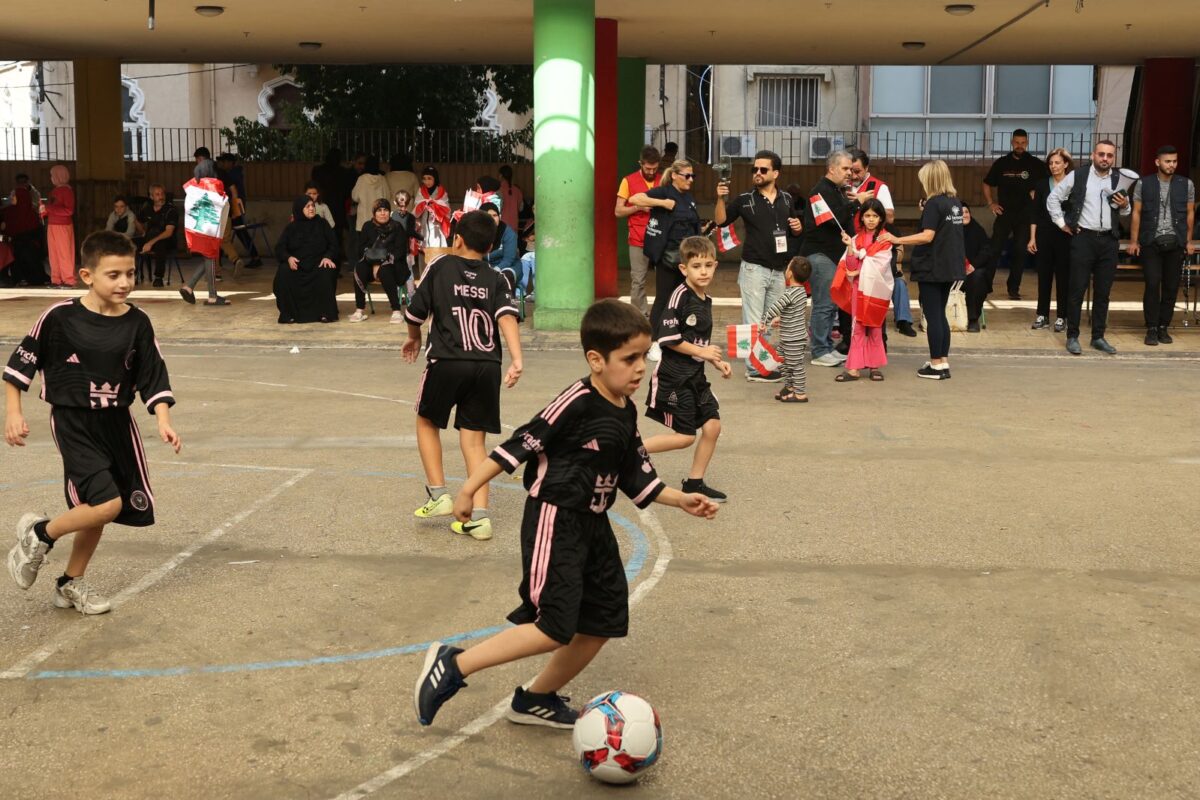
Lebanon’s Ministry of Education has announced that public schools will move to a four-day teaching schedule per week instead of the traditional five
The decision, revealed on Tuesday following an administrative meeting at the ministry, has sparked widespread debate among educators and parents, many of whom worry about its impact on students’ already fragile learning outcomes.
While the ministry argues that the new framework will help stabilize the school year and make it more manageable under current pressures, questions remain over how these adjustments will affect learning quality, especially in already under-resourced public schools.
The shift comes against the backdrop of years of disruption in Lebanon’s education system.
Prolonged school closures during the COVID-19 pandemic, compounded by the country’s deepening economic collapse, have already taken a heavy toll on both teachers and students.
More recently, the ongoing political instability and the humanitarian crisis triggered by Israel’s latest war on Lebanon have further eroded classroom learning and placed unprecedented strain on families.
Education Minister Rima Karami defended the new arrangement, stressing that it aims to ease pressure on teachers and administrators while ensuring the academic year can still be completed. She emphasized the principle of “centralized standards with decentralized implementation,” granting regional education authorities flexibility in applying the policy while maintaining unified national benchmarks.
However, concerns remain over whether reducing classroom days will widen existing educational gaps, particularly for children in public schools, who have already borne the brunt of Lebanon’s overlapping crises.
Karami clarified that the decision to continue with a four-day teaching week applies only to public schools. She explained that this arrangement has been in place for the past two years, first introduced after the end of remote learning during the COVID-19 pandemic and maintained throughout the economic crisis.
The policy, she noted, was the result of an understanding between the ministry and teachers’ unions to reduce working hours in light of financial and operational constraints.
The shortened week, Karami added, is tied to several factors: the ministry’s limited operating budget, teachers’ salaries, which often push them to seek additional income outside the classroom, and the financial burden on families, particularly transportation costs for students.
Despite acknowledging the pressures that led to the continuation of the four-day model, Karami stressed that the ministry had hoped to restore the full five-day week this year. She said multiple discussions were held with teachers’ associations and the Finance Ministry, but the constraints of the current budget, still tied to last year’s allocations, left no room for change.
“For this academic year, we had no choice but to proceed with a four-day schedule to ensure stability and an organized start,” Karami stated. However, she emphasized that this should be the last year of such an arrangement, expressing optimism that with the ministry’s upcoming dedicated budget, schools will be able to return to a normal five-day week.
She also underlined ongoing efforts to adjust public-sector salaries to better support teachers and prevent further erosion of Lebanon’s education system.
Growing divisions?
Meanwhile, the private education sector clarified that the measure does not apply to private schools.
The decision underscores the growing divide between Lebanon’s public and private education sectors. While public schools adapt to constrained resources and operational challenges, private institutions continue to operate with greater autonomy, reinforcing longstanding inequalities in access to quality education.
The adjustment to a four-day school week will be accompanied by an extension of class periods to 50 minutes. This means that public school days will now end roughly half an hour later than before, allowing schools to reintegrate practical subjects such as laboratory work and extracurricular courses.
But outside the ministry, frustration over the government’s latest education policies is mounting.
Teachers’ unions have criticized the new four-day teaching week, arguing it was imposed without properly consulting those most affected. Nasreen Shaheen, head of the Association of Contract Teachers in Basic Education, stated that “decisions are made in political backrooms without considering our demands.”
She also warned that the reduced schedule will deepen Lebanon’s already severe “learning loss”, the gap between the lessons students are supposed to receive and what they actually retain.
With nearly 80 percent of Lebanon’s public school teachers working on temporary or hourly contracts, she added, the new arrangement will also cut into their already unstable incomes.
Parents, too, voiced discontent. Two parents who NOW Lebanon spoke to their children as are in public schools agreed that reducing school to four days will disrupt their own work routines, since most households rely on a five-day workweek.
For families already struggling under Lebanon’s economic collapse, this represents yet another unmanageable burden.
“Parents are trying their best, but we cannot replace the role of trained teachers or a structured classroom environment,” Amal, a full-time accountant and freelance photographer, told NOW.
“We are forced to juggle our jobs, household responsibilities, and now, finding ways to keep our children occupied and safe during what should be a school day,” Amal added.
Many fear that the ministry’s latest decision risks normalizing lowered expectations and widening Lebanon’s already alarming educational gaps.
Maya, a full-time nurse and mother of two children, expressed her disappointment to NOW: “How can we expect our children to compete academically, to pass official exams, or to even dream of higher education abroad when they are receiving fewer hours of education than their peers in private schools or in other countries?”
Rodayna Raydan is a Lebanese-British journalist. You can follow her on Twitter @Rodayna_462
The views in this story reflect those of the author alone and do not necessarily reflect the beliefs of NOW.








